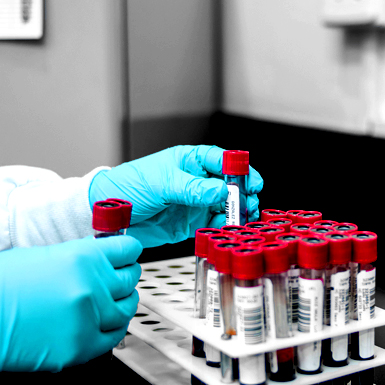Chronic heart failure (CHF) is a clinical syndrome which often requires constant therapeutic interventions due to recurrent episodes of cardiac decompensation. In this context, identification of new circulating biomarkers that reflect the status of multi-organ pathophysiology may be a valuable clinical tool, as these biological signals precede cardiac decompensation and may provide early tissue- and organ-specific information in CHF. As such, the use of these biomarkers may be relevant for a patient’s prognosis as these biomarkers may further refine estimation of the patient’s risk, but may also be useful for designing more effective strategies for biomarker (trajectory) – guided therapy. Moreover, their clinical role may also be to assist in the care of CHF patients by means of better phenotyping of the disease, and their dynamical changes over time may be practically important to detect more aggressive forms of CHF.
To discover new biomarkers for CHF, we have analyzed Olink’s Cardiovascular III panel within the unique repeated-measures study design of prospective BioSHiFT cohort of patients with CHF. The Cardiovascular III panel is a multiplex assay based on PEA (proximity extension assay) technology. In brief, the assay uses two oligonucleotide-labeled antibodies to bind to their respective target proteins in the sample. When the two antibodies are in close proximity, a new PCR target sequence is formed by a proximity-dependent DNA polymerization event. The resulting sequence is subsequently detected and quantified using standard real-time PCR. For further details on this technology please see video below.
To find out more about new emerging biomarkers in CHF that were identified in the BioSHiFT cohort please see below:
- Bouwens E, Brankovic M, Mouthaan H, Baart S, Rizopoulos D, van Boven N, Caliskan K, Manintveld O, Germans T, van Ramshorst J, Umans V, Akkerhuis KM and Kardys I. Temporal Patterns of 14 Blood Biomarker candidates of Cardiac Remodeling in Relation to Prognosis of Patients With Chronic Heart Failure-The Bio-SHiFT Study. Journal of the American Heart Association. 2019;8:e009555.
- Brankovic M, Akkerhuis KM, Umans V, Boersma E and Kardys I. Response to Letter to the Editor: “Cardiometabolic Biomarkers and Their Temporal Patterns Predict Poor Outcome in Chronic Heart Failure (Bio-SHiFT Study)”. The Journal of clinical endocrinology and metabolism. 2019;104:736-737.
- Brankovic M, Martijn Akkerhuis K, Mouthaan H, Constantinescu A, Caliskan K, van Ramshorst J, Germans T, Umans V and Kardys I. Utility of temporal profiles of new cardio-renal and pulmonary candidate biomarkers in chronic heart failure. International journal of cardiology. 2019;276:157-165.
- Brankovic M, Akkerhuis KM, Mouthaan H, Brugts JJ, Manintveld OC, van Ramshorst J, Germans T, Umans V, Boersma E and Kardys I. Cardiometabolic Biomarkers and Their Temporal Patterns Predict Poor Outcome in Chronic Heart Failure (Bio-SHiFT Study). The Journal of clinical endocrinology and metabolism. 2018;103:3954-3964.

